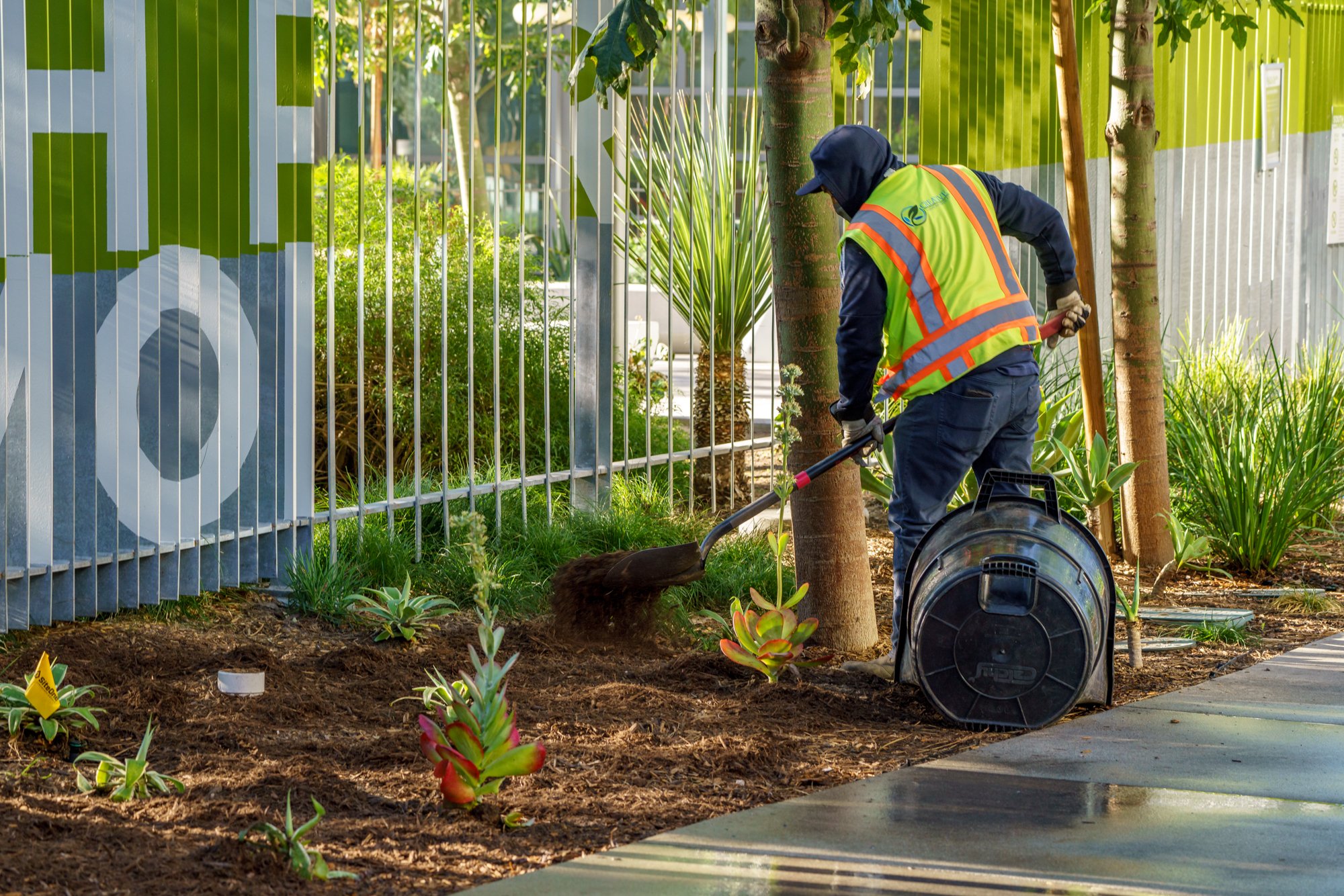California’s New Composting Law
All Californians – both individuals and businesses – are now required to separate food waste and “compostables” from their recyclables and garbage. The new regulation (AB 827) is being rolled out slowly, but by end of year 2024 the new law will have taken full effect. After that date, those violating the law will find themselves fined. Plan on adding a “compostables” container to your recyclable and garbage bins under your kitchen sink.
Luma, at Hope and 11th, has already started a composting program. NASA, Luma’s refuse service, implemented this program to assist in compliance with California law. There is an additional cost for composting. Luma is starting with a 96-gallon container serviced once a week. As more residents compost the size of the containers, number of containers, and frequency of pickup will increase. Luma General Manager Francis Langlois said, “Back in 2008 Luma became the second building in all of LA to be LEED certified. Recycling is in our DNA and something that most of our residents feel strongly about. This is just another way we can all contribute to making our little corner of this beautiful planet slightly better.”
What are “compostables”? Anything that grows in nature is compostable. See https://www.greenmatters.com/p/what-can-you-compost for a detailed description of what’s compostable and what’s not. Generally speaking, all foods and food products, coffee grounds, wood products, and paper products like toilet paper tubes, food packaging boxes, and used paper towels are “compostable.”
For now, don’t put any meat waste or meat products in your compost. It smells and attracts varmints. It’s a good idea to contact your refuse handling company to get specifics as each company has its own requirements. Check with your building manager to see what’s required for composting from here on. Every building must have a plan.
What’s not “compostable”? Any animal products – no meat, fish, butter, yogurt, cheese, milk, or animal fat, oily or greasy items. Pet poop is not compostable (it introduces disease to compost).
What are the benefits of composting? Anything that goes into the landfill emits methane gas which adds to our greenhouse gas problem. Composting minimizes methane emissions and reduces the need for chemical options. Composting captures up to 99.6 % of volatile organic compounds and provides a nutrient-rich natural fertilizer. With full enactment of the composting law, we expect to reduce compostables in the landfills by 75% - an action that will have a dramatic effect on California’s contribution to greenhouse gases.
By John Nilsson


